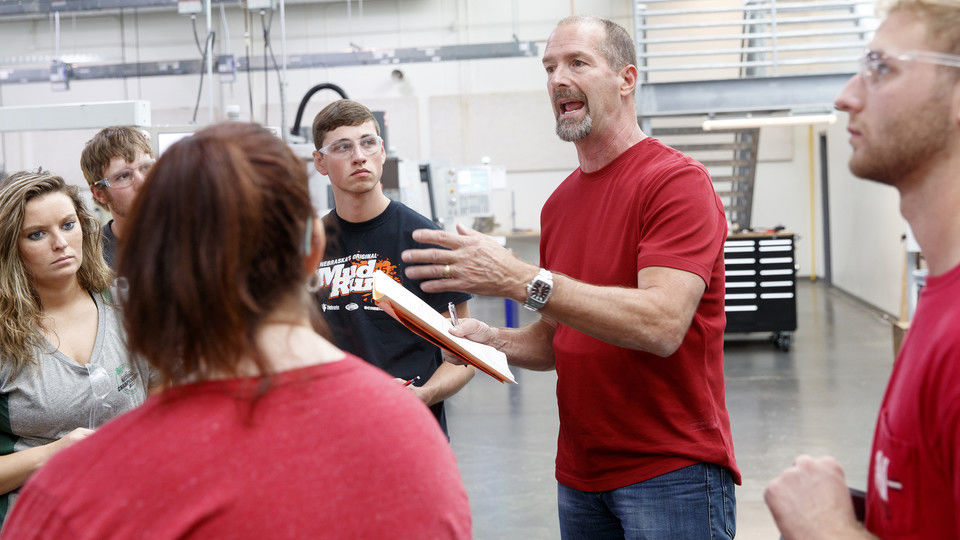Huskers help fill Nebraska’s growing ag education needs

Albion native Toni Rasmussen is among Husker graduates helping fill the burgeoning need for agricultural education teachers across Nebraska.
A May 2017 graduate of the University of Nebraska–Lincoln’s Department of Agricultural Leadership, Education and Communication, Rasmussen was hired last fall as the first ag education teacher at Wayne High School.
The position is part of a 40 percent increase in agricultural education programs offered at Nebraska high schools since 2010. That growth mirrors national demand for skilled ag professionals and is helping graduates of Nebraska’s ALEC program, part of the College of Agricultural Sciences and Natural Resources, make immediate impacts in communities and in the classroom.
“We just graduated 25 students who are prepared to teach this August and nearly all have accepted teaching positions in Nebraska,” said Matt Kreifels, associate professor of practice in the ALEC program and state director of agricultural education for the Nebraska Department of Education.
In his dual role, Kreifels works with ALEC and the Department of Education to assist schools in starting ag education programs, providing resources to help schools survey needs, interest, community support and the political climate.
Through the last eight years, Kreifels has helped 55 Nebraska schools add agricultural education programs. This fall, 189 Nebraska schools will offer agricultural education programs to high school students. The majority of those classes will be led by Husker graduates.
While in high school, Rasmussen participated in an ag education program. The opportunity led her to create a goat enterprise on her family farm through a supervised agricultural experience. It also helped guide her career plans after college.
Ag education programs at the high school level feature three components—direct classroom instruction; leadership development through Nebraska FFA; and experiential learning through a supervised agricultural experience, which can be anything from raising livestock to a research project.
“Similar to CASNR’s emphasis on a systems approach, what we do at the high school level is encourage students to take courses in several programs of study,” Kreifels said.
Based on industry trends, high school students participating in agricultural education programs can expect good employment opportunities if they pursue careers in agricultural related fields. Between 2015 and 2020, the U.S. Department of Agriculture estimates an annual average of 57,900 job openings for graduates with bachelor’s degree or higher in food, agriculture, renewable natural resources or environmental fields. During that same five-year span, an annual average of only 35,400 graduates are expected to fill openings.
Rasmussen is now one of 200 ag education leaders across Nebraska.
“The Wayne community has been extremely welcoming throughout this entire process,” Rasmussen said. “When the students started to understand the culture of an ag ed classroom and started treasuring their FFA jackets, that is when I started to realize the good that was being done for the students.”
Some of Rasmussen’s favorite moments over the course of her first year in the classroom have come as students recognize that agriculture is not only farming, but also involves marketing, processing, communications and a variety of other fields. Several of her students have already indicated an interest in pursuing a career in agriculture.
While it prepares new ag educators for the classroom, Nebraska’s ALEC department also helps teachers stay current with industry developments. The department offers several professional development workshops throughout each year, helping educators offer the latest, most-relevant curriculum to students.
The workshops have led to schools expanding lessons to include greenhouses, aquaponics programs and animal laboratories. Trades such as welding and construction have also been introduced to students.
“The cool thing about this department and agricultural education is that we’re not just preparing students and then sending them out to teach and we’re done,” Kreifels said. “We’re involved in helping to support our teachers’ post-bachelor’s degree.”
To learn more about Nebraska’s Department of Agricultural Leadership, Education and Communication, visit https://alec.unl.edu.
